Puck, the Faerie Dragon, is one of the most recognizable mid heroes in Dota 2. She’s also among the flashiest heroes in the game, which, of course, makes her one of the most enjoyable to play.
She is slippery, mischievous, and sometimes downright annoying. Her main role is that of ganker and initiator, thanks to her kit which allows her to quickly disrupt and confuse enemy heroes while keeping them within the general area. Both Illusory Orb and Phase Shift give her plenty of time to escape danger, and both Waning Rift and Dream Coil give her a critical role in teamfights.
She does, however, require precise control, a high level of situational awareness, and quick thinking in order to be successful. Since she is extremely fragile, a single misstep can often spell doom for Puck, especially when caught in the midst of heroes with fast disables. While Puck can definitely go on the aggressive herself, sometimes it is better to wait for a more opportune moment.
Under the hands of an experienced player, though, she can be a highly oppressive force on the battlefield—capable of some serious highlight reel-worthy plays. If you feel like channeling your inner Gustav “s4” Magnusson, give Puck a whirl and see how far she takes you.
Puck’s bag of tricks
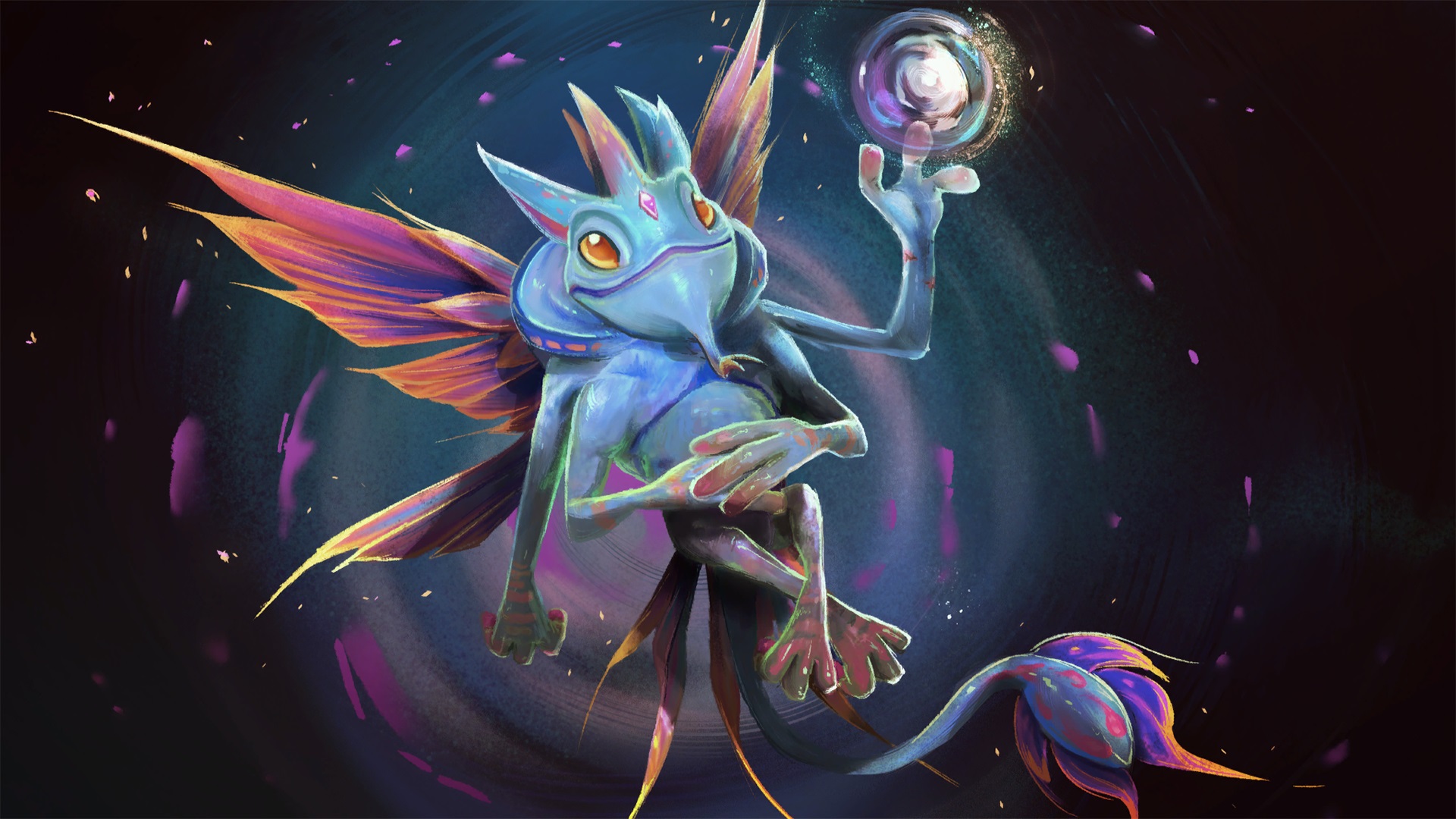
Our recommended skill build is as follows:
- Illusory Orb
- Phase Shift
- Illusory Orb
- Waning Rift
- Illusory Orb
- Dream Coil
- Illusory Orb
- Max out Waning Rift
- Dream Coil
- Max out Phase Shift
- Level 10 Talent: +10 Intelligence
- Level 15 Talent: +50 Damage
- Dream Coil
- Level 20 Talent: +40% Illusory Orb Distance/Speed
- Level 25 Talent: +420 Gold/Min
Your main laning phase harassment and last-hitting tool is Illusory Orb, which is why it is maxed out first. It has a cheap mana cost at the earlier levels, making it quite spammable for these purposes. It’s also incredibly useful for controlling the river runes, as it helps you beat faster heroes to the spawn spots.
Keep in mind, however, that it is also your only early game escape mechanism, so use it sparingly if the enemy supports rotate towards your lane often.
Don’t be afraid to use Phase Shift to avoid spells and auto attacks coming from your lane opponent. After all, it costs nothing to cast, and routinely dodging incoming damage will keep you healthy and make your consumables last longer.
Once you hit level 6 and have Dream Coil available, you can opt to gank one of the sidelanes—especially if you snag an Invisibility or Haste rune. Coordinate with your supports as much as possible in order to secure kills with the damage from Illusory Orb and Waning Rift, or the snap stun from Dream Coil.
Getting Phase Shift to level four as soon as possible is significantly more important than getting the level 10 talent, due to its interaction with Blink Dagger, Puck’s first core item. More on that in a later section.
“This might prove a sport of some interest…”
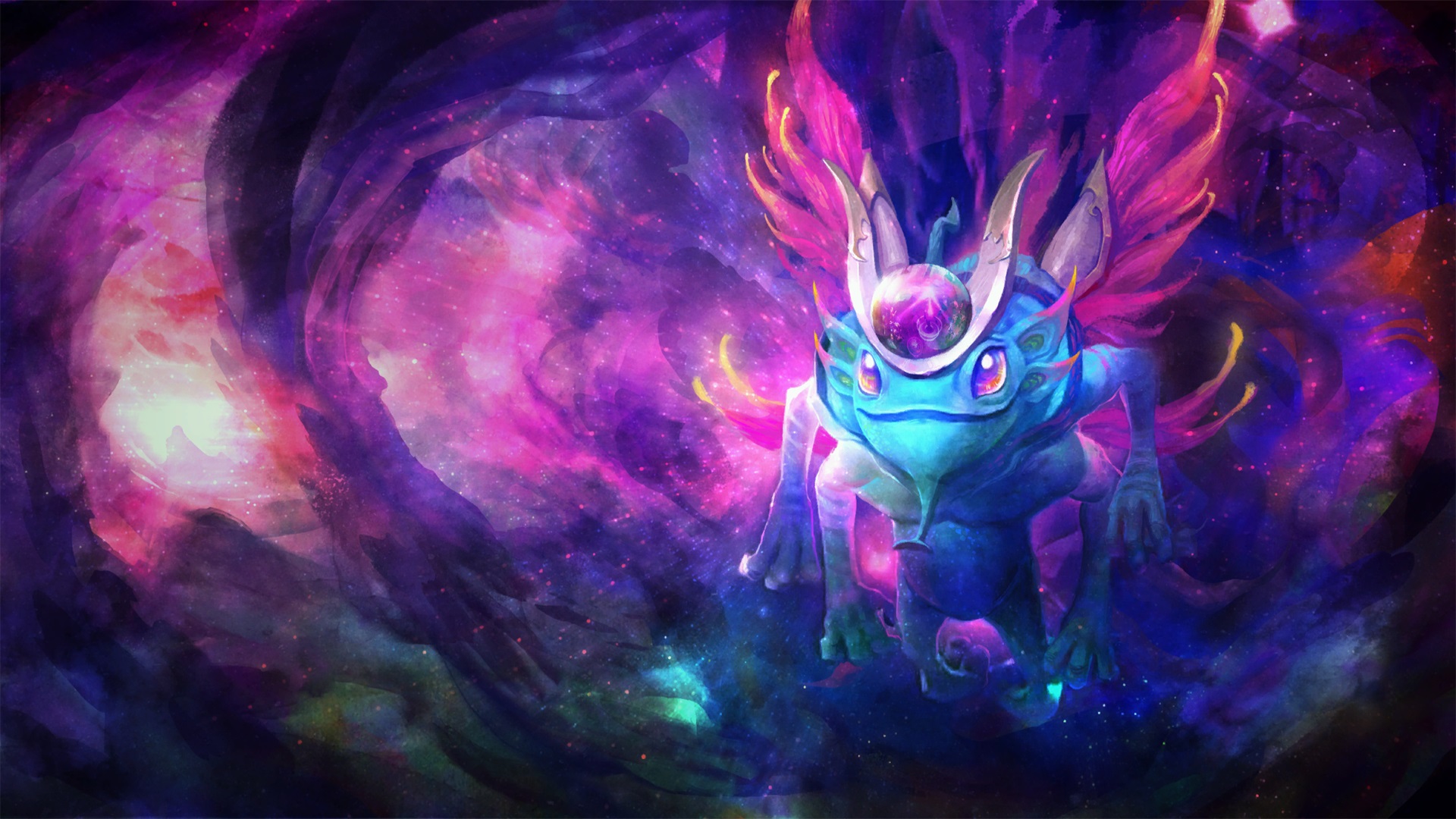
Puck is typically played as a mid hero, due to her ability-focused design and need of quick levels. Placing her in the mid lane also means that she gets easier access to the river runes, which helps keep her health and mana topped up when combined with a Bottle.
Generally, the laning phase will be about getting as much experience and farm as possible, and ganking when the opportunity presents itself. Puck’s mobility also allows her to try for one-vs-one kills in lane, but it can be easy to bungle the Orb + Rift combo if her opponent is good at dodging the Orb.
Beyond that combo, she doesn’t have a lot of damage output, so sometimes it’s best to just focus on farming. Unfortunately, Puck really doesn’t have the best attack animation and projectile speed in the game, making last-hitting with her regular attack quite difficult. As with any basic mechanical skill in Dota 2, though, it just takes some practice.
“I do enjoy an occasional blink”
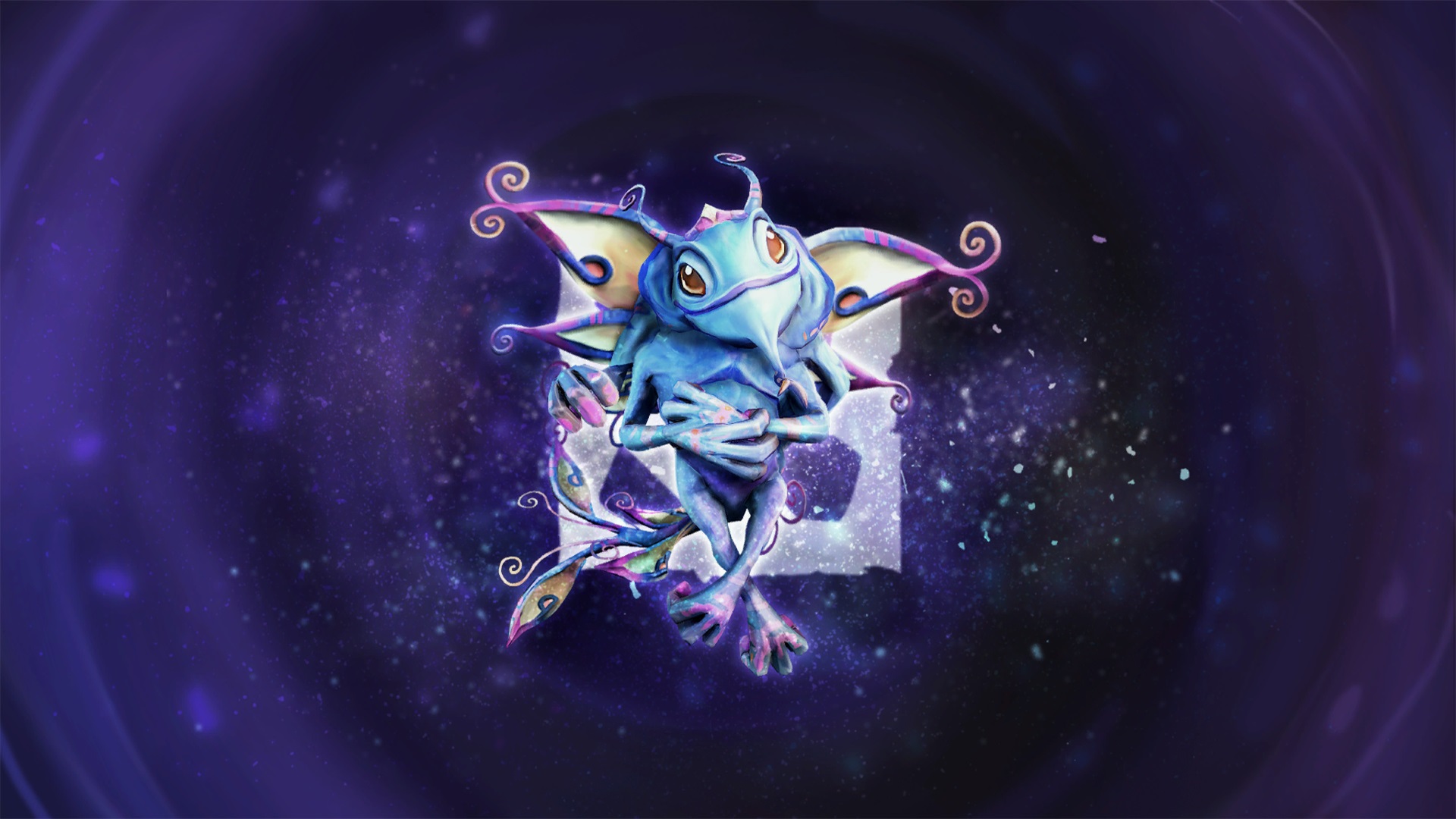
On the leadup to the mid game, the first item you should purchase is a Blink Dagger. This item was practically made for Puck, and equipping one makes her twice the hero that she would otherwise be without it.
This is primarily because of its synergy with Phase Shift, particularly in the overlap between Phase Shift’s duration at level frour (3.5 seconds) and the Blink Dagger’s cooldown upon taking damage (three seconds). Timed right, Phase Shift will always allow you to escape from danger, even after getting hit by enemy heroes.
Of course, this assumes that you aren’t disabled or otherwise prevented from casting Phase Shift in the first place, but if you are free to act there is usually no way for your opponents to keep you from blinking away.
On the other hand, Blink Dagger can be used aggressively. To initiate with it, blink into as many enemy heroes as possible, cast Waning Rift to silence them, then follow with Dream Coil to trap them and Illusory Orb to reposition yourself. Use Phase Shift after Illusory Orb if necessary.
This combo will usually lead to a teamfight victory for your side, but of course, make sure to communicate your intent to initiate before committing. You don’t want to blow all of your cooldowns only to find out that your team isn’t there to capitalize on your initiation.
The Myriad Paths of the Rift
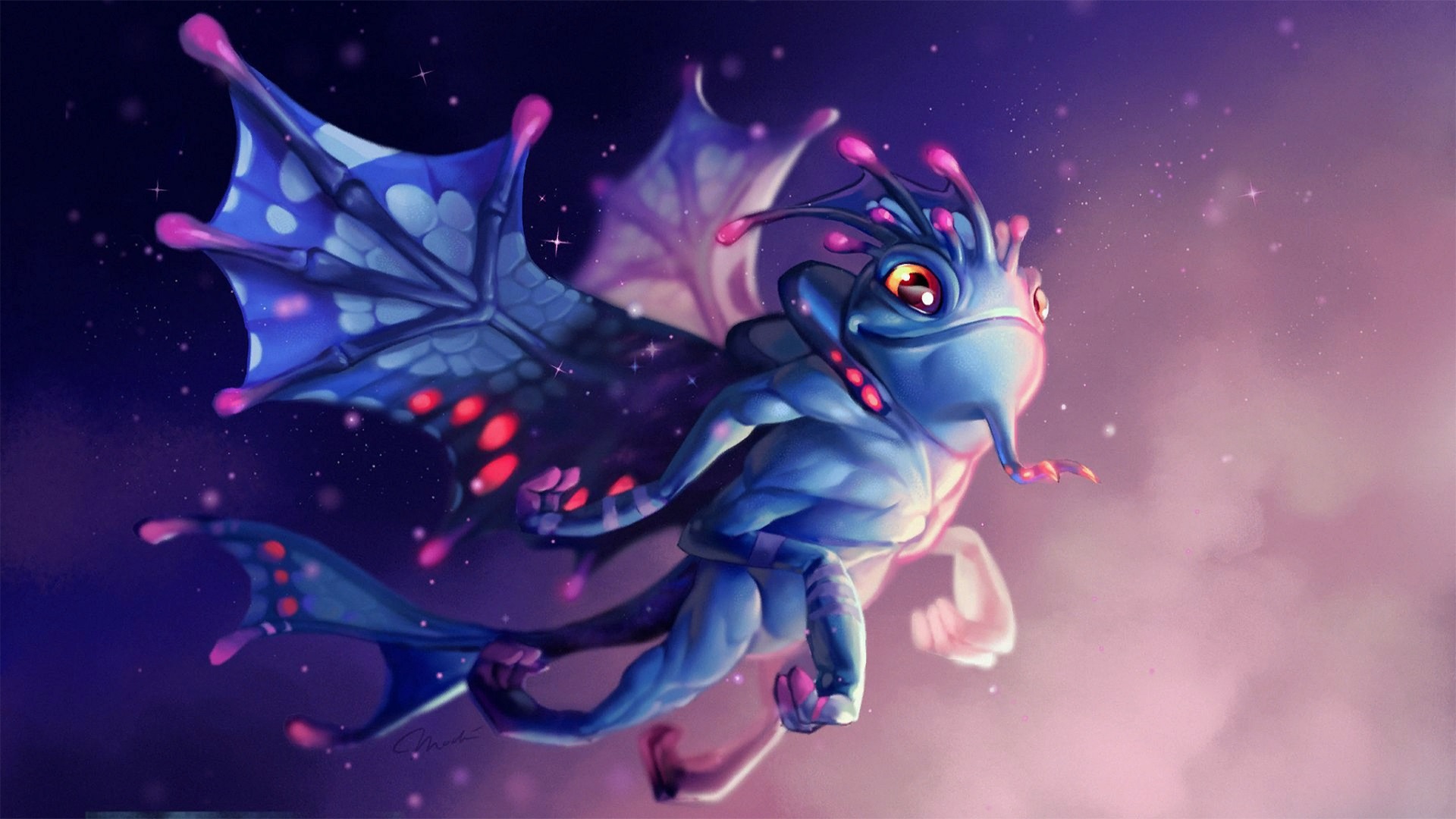
After securing a Blink Dagger, it’s often worth considering building items that further increase Puck’s capability to elude enemy heroes. Eul’s Scepter of Divinity is one of the most common pickups for this purpose, since the built-in Cyclone ability acts kind of like a secondary Phase Shift. It also allows Puck to keep specific targets in place for Waning Rift once they come down from the Cyclone.
Linken’s Sphere is another excellent choice. Aside from the Spell Block, the item’s passive regeneration bonuses help keep Puck in fighting shape and always ready for the next gank. Pick Linken’s Sphere against lineups with powerful single target stuns, silences, or disables.
Although not the first choice when it comes to mobility items, Force Staff can be useful against heroes like Riki, who can instantly silence Puck out of nowhere with Smoke Screen and his passive invisibility. As an added bonus, it can be used to forcibly snap Dream Coil on one target.
On the other hand, more daring Puck players can go for a more aggressive item progression path. Since Puck can often have trouble dealing enough damage on her own, a Dagon can be a worthy pickup for some extra burst damage. Dagon is especially useful when your opponents have little to no answers for it or ways to prevent you from using it.
Aghanim’s Scepter gives some insane bonuses to Dream Coil. Not only does it pierce spell immunity when augmented by the item, but it also deals a 4.5 second stun and 700 damage at max level when snapped. No, that’s not a typographical error. Scepter Dream Coil really does deal almost as much damage as Lion’s level two Finger of Death. How’s that for a deadly initiation?
Scythe of Vyse is a universally useful late-game item for Puck. Hex is one of the best surprise disables in deep late-game situations, especially against melee hard carries. Blinking in and instantly disabling a key target can allow the rest of your team to focus that enemy hero down, and if they die without buyback it could mean victory for your side.
Shiva’s Guard is a good choice for slowing hard carries down as well, thanks to the attack speed slow and armor aura. The included area of effect nuke is also fairly powerful and is a nice addition.
Puck is a trickster to the core, and with his mischief comes a high skill floor and ceiling to match. Should you choose to use her power, be aware that it will take a while for you to get your bearings. Even with Phase Shift and Blink Dagger’s natural synergy, a lot can go wrong in an instant if this hero is mishandled.
But of course, she is very rewarding once mastered. Not only is Puck an effective pick in almost any metagame, she is also one of the most impressive heroes to watch when piloted by an expert. And when she’s juking and escaping every gank attempt, it is truly a sight to behold.


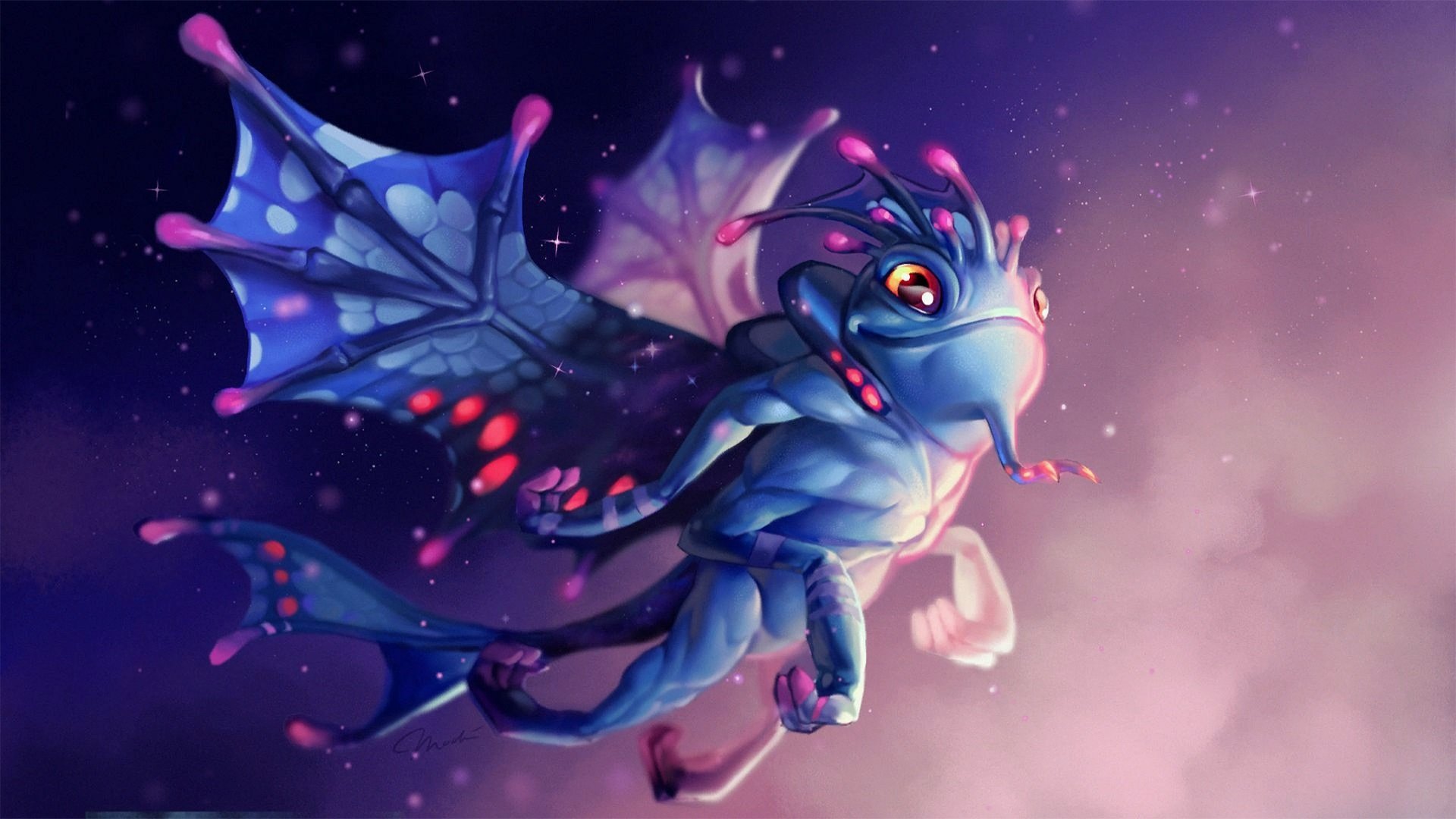









Published: Dec 8, 2017 3:02 PM UTC